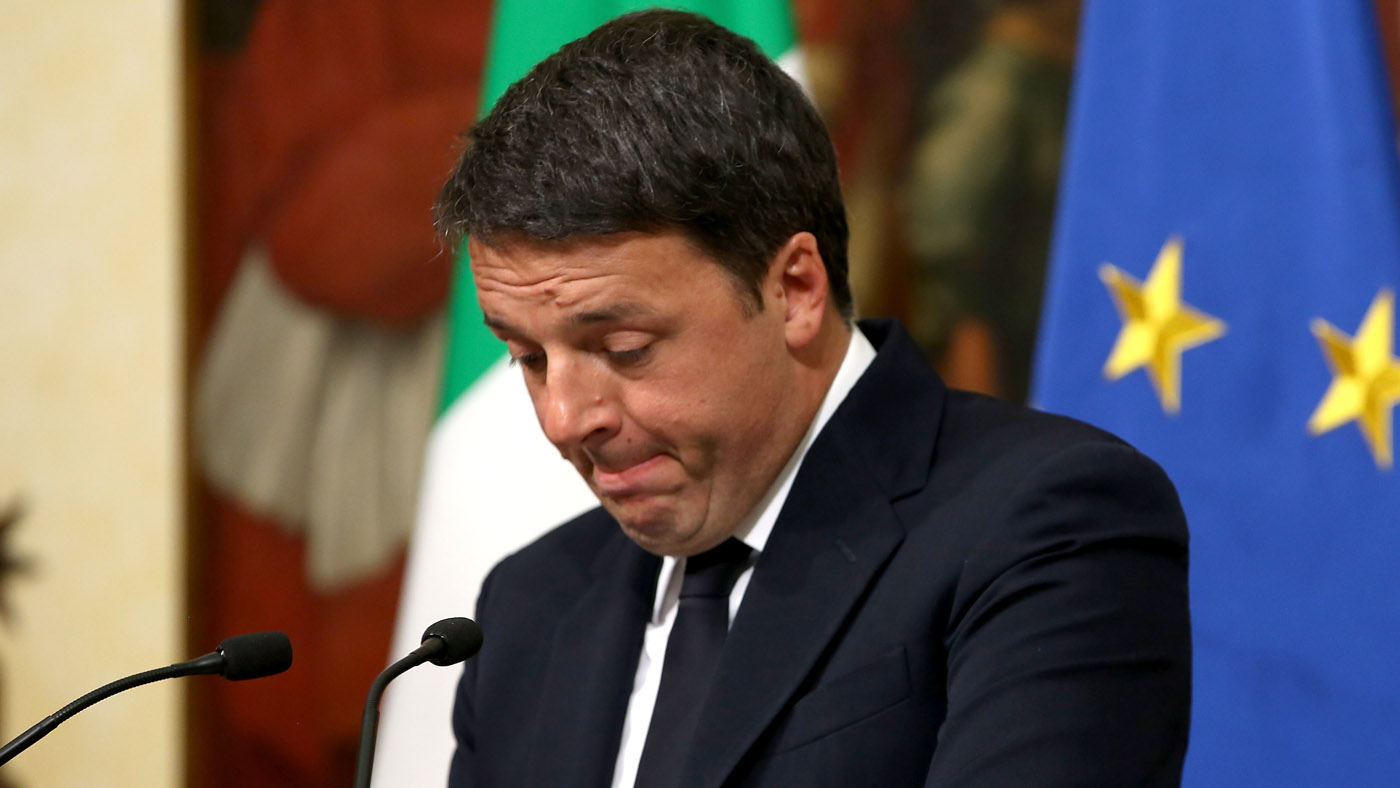Italian Prime Minister Matteo Renzi resigns after referendum defeat
Voters reject constitutional changes, leading to warnings of an 'Italexit' that would 'make Brexit look like a picnic'

A free daily email with the biggest news stories of the day – and the best features from TheWeek.com
You are now subscribed
Your newsletter sign-up was successful
Matteo Renzi, the Italian Prime Minister, has said he will resign after voters overwhelmingly rejected a raft of constitutional changes in Sunday's referendum.
With most ballots counted, "the No vote leads with 60 per cent against 40 per cent for Yes", the BBC reports.
Renzi conceded defeat hours before official results were released. "My experience of government finishes here," he said.
The Week
Escape your echo chamber. Get the facts behind the news, plus analysis from multiple perspectives.

Sign up for The Week's Free Newsletters
From our morning news briefing to a weekly Good News Newsletter, get the best of The Week delivered directly to your inbox.
From our morning news briefing to a weekly Good News Newsletter, get the best of The Week delivered directly to your inbox.
The result marks a "major victory for anti-establishment and right-wing parties" and threatens to plunge "the eurozone's third-largest economy into political chaos", says The Guardian.
Renzi aimed to restrict the power of Italy's senate by reducing the number of senators from 315 to 100 and stripping it of the ability to hold votes of no confidence in the government.
However, the referendum became "a litmus test for the rising wave of populism spreading in Europe", says CNN, "and the chance to register discontent with the current government".
Unlikely allies the anti-immigrant Northern League party and the populist Five Star Movement "locked arms to take on Renzi in the hope – now realised – of driving him out of office", the Guardian adds.
A free daily email with the biggest news stories of the day – and the best features from TheWeek.com
The "anti-establishment revolt" could now "gift power to populists wanting to taking the country out of the euro", says the Daily Mail. "Now for Italexit!" it adds. [[{"type":"media","view_mode":"content_original","fid":"104569","attributes":{"alt":"","class":"media-image","height":"794","width":"566"}}]]
Desmond Lachman, a resident fellow at the American Enterprise Institute, warns a "prolonged period of political uncertainty is the last thing that a sclerotic Italian economy now needs" and that a future "Italexit" would "make Brexit look like a picnic".
The two frontrunners for the post of prime minister are Pier Carlo Padoan, the finance minister, and Dario Franceschini, the culture minister.
The task of forming an interim government will fall to President Sergio Mattarella. However, Luigi Di Maio, the leader of the Five Star Movement and "widely tipped to be a prime minister in any future Five Star government", is calling for immediate elections, says the Daily Telegraph.
Infographic by www.statista.com for TheWeek.co.uk.